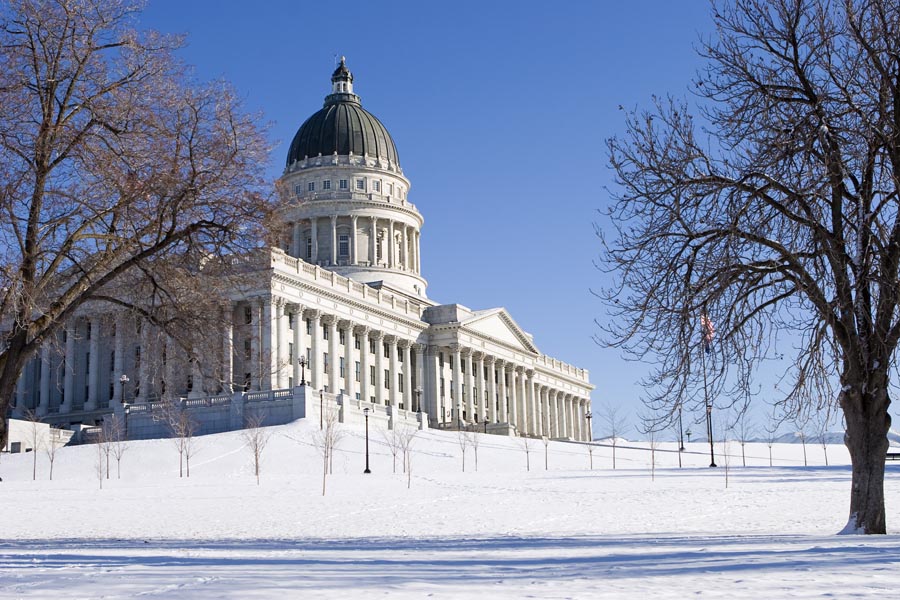| Utah lawmakers like to talk about the need to get government out of the lives of average citizens, but they just whiffed on a great opportunity to take a step in that direction. Rep. Brian Greene, R-Pleasant Grove, sponsored a resolution that would have asked Utah voters to approve a simple amendment to the state constitution. It would have protected Utahns against government infringement “on the individual, inalienable right of the people pursue |
| | an honest trade, vocation, occupation, or career…” The only exceptions would be for narrow requirements that directly protect public health and safety. It failed miserably in the House Judiciary Committee, rejected by a 7-3 vote after a lot of blather from opponents about the harm it would do. Some lawmakers, Rep. Greene told me afterward, “like to say they’re for limited government and less regulation, but when you present them with (a way to make that happen) they get a little bit squeamish.” If you’re wondering what all the fuss is about, especially in a state where unemployment is at a scant 3.1 percent, you should consider how much better things could be. The Institute for Justice ranks Utah as the 15th “most extensively and onerously licensed state for moderate-income occupations,” and the state with the 13th “most burdensome licensing laws for moderate-income occupations.” What this means is that if you want to provide for your family in any of a variety of moderate-income professions, from upholsterer to commercial paint contractor, big brother will force you to meet a list of requirements before you may receive a license to work. And the thing is, most other states don’t even license upholsterers and commercial painters, nor a list of other occupations Utah government feels the need to get its hands on. Nearly 30 percent Utah’s workforce is required to have a license of certificate of one sort or the other, with an average of 504 hours of education and experience and at an average cost of $367 in fees. Many of these requirements exist specifically to keep the people currently in those professions from facing too much competition, which effectively makes it harder for people to find work, just as it limits innovations and raises consumer prices. Lee McGrath, Senior Legislative Counsel in the Minnesota office of the Institute for Justice, which focuses on limiting government power and promoting personal freedoms, told me, “No evidence exists that these government requirements protect consumers.” In the age of the smart phone, anyone can research a contractor’s reputation in a matter of seconds. How does a state like Utah become mired in such regulation? That’s easy to answer. People already working in professions approach legislators and request laws that set licensing standards. Because the only opponents are people who some time in the future may want to enter the field, lawmakers find it easy to comply. “Consumers rationally do not climb the steps of the Capitol in Salt Lake City to lobby against these bills,” McGrath said, adding, “One of the great failures of democracy is that it gives rise to factions and special interests.” Perhaps not all Utah lawmakers are insincere when they rail against big government, but sometimes it sure seems like it. This year, Sen. Luz Escamilla, D-Salt Lake, succeeded in passing a bill that would reduce the hours it takes to train for a private investigator’s license from 10,000 to 5,000, and lower the minimum age. Turns out it takes 10 years on average to earn that many hours, and few people were making it. But even that barely passed the House, 38-30. Utah made headlines six years ago when an immigrant from Sierra Leone challenged the requirement of 2,000 hours training to become a hair braider. She won, leading some to believe the days of onerous licensing were numbered. That was premature, apparently. Nationally, this issue is gaining more traction than in Utah. Some, including George Mason University economics professor Tyler Cowen, are calling on Washington to take licensing power away from the states. Meanwhile, Greene says he’s not giving up. Maybe next year he can persuade enough of his conservative colleagues that the state would have much to gain by allowing more competition. |


 RSS Feed
RSS Feed

